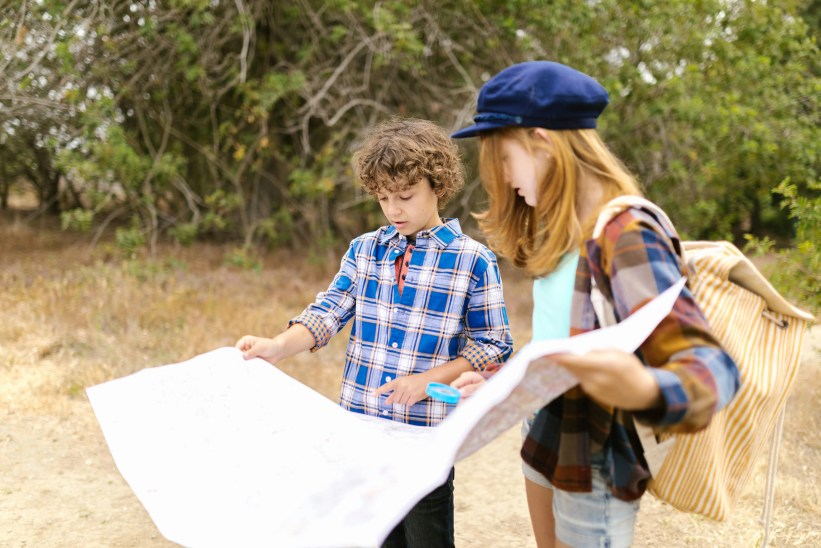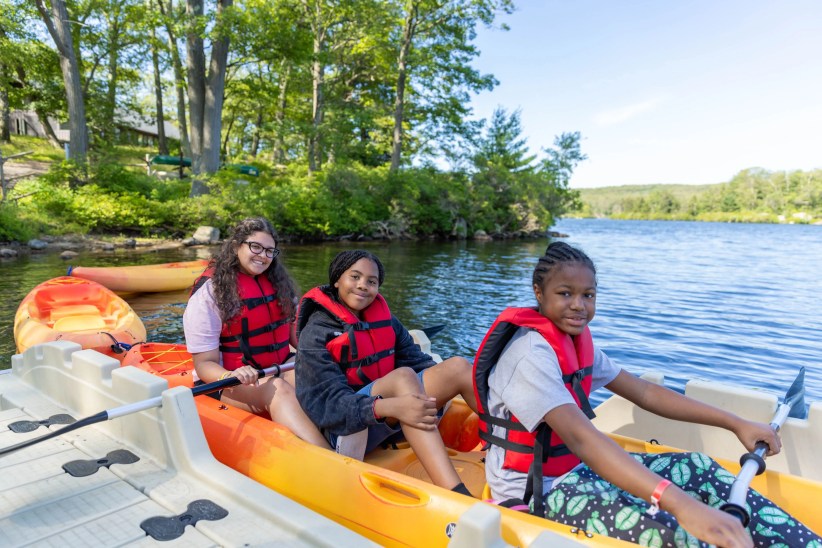 Editor’s Note: For more articles related to special needs camps, check out Special Needs Camps: Questions and Considerations, Camps Are Addressing Special Food Needs, and A List of Special Needs Camps to Consider.
Editor’s Note: For more articles related to special needs camps, check out Special Needs Camps: Questions and Considerations, Camps Are Addressing Special Food Needs, and A List of Special Needs Camps to Consider.
Summer camp provides children with the opportunity to develop new skills, build self confidence, and learn to work with others as a team. There are many factors you need to consider when looking for a camp for your child, including a camp’s philosophy, program emphasis, and what type of child is successful at the camp in question. And a parent of a child with special needs is going to have even more considerations that go beyond the usual camp search. Not every summer camp is equipped to address the specific needs of every child with special needs. However, if parents do their research, they are certain to find a summer camp that will provide their child with a successful summer camp experience.
First, it’s important for you to consider what you want your child to take away from the camp experience and what your child wants too. Do you want your child to gain independence and learn daily living skills without your assistance? Improve social interactions? Make new friends? Decide what your must-haves are and what’s on your wish-list. When speaking to camp directors, make sure the camp has the must-haves—this will help you narrow down your summer camp choices.
Next, you want to talk to the camp director at the camp you’re interested in sending your child to, ask questions about their program, and tell the director about your child.
“Parents really want to dig down and understand what population the camp services and who the camp is really trained to work with,” says Eric Sasson, director at CampAkeela, a resident camp for children with Asperger’s Syndrome and non-verbal learning disabilities in Thetford Center, VT. “When speaking to a camp director, parents want to describe their child and the challenges he or she has and you want to ask if the camp has had kids like this in the past. If so, ask the director to tell you about those kids. If [these kids] had meltdowns at camp because they don’t do well with transitions, how did the staff handle it? Parents want to know that a camp director and staff are going to be able to handle these challenges and behaviors when they aren’t there.”
It’s important for parents to have honest conversations with the camp director about their child and share specifics, whether you are looking into a mainstream camp or a special needs camp. Tell the camp director about your child’s most challenging days. You want to be assured that the camp you are choosing can handle the issues that may come up during the summer.
Families are also encouraged to choose a summer camp where the director is interested in meeting your child and family. Families want to know that the camp isn’t just taking your child but that the camp has determined that the camp is right for your child.
“After speaking with a family, we meet with the parents and the child to make another level of determination if this will be a good fit,” says Lisa Tobin, director of RoundLake, a resident camp for children with learning differences and social communication disorders in Lakewood, PA. “It gives us insight into the child’s family life to see if we have the services that can provide the right camp experience for this child.”
Families should feel that the camp director is doing as much questioning about your child as you are doing to them.
When deciding between a mainstream camp and a special needs camp, you also have to consider what will work best for your child. Many mainstream camps can often accommodate children with special needs, but it’s important to have honest conversations with the camp director about your child and find out whether the camp is equipped to handle the challenges that your child may have. They may or may not have the extra supervision your child may need or the experience in dealing with your child’s needs. Special needs camps focus on the specific challenges your child may have and structure their program around those needs with extra staffing, shorter, and more structured activity periods, and can be better prepared to handle issues that may arise.
“Parents need to consider if their child can travel with a group. Do they tend to wander off? Do they get distracted? Do they need extra attention? If so, a mainstream camp may not be able to give your child the attention he or she needs,” Tobin says. “Also, at a typical camp, children are in sports and challenging activities that may be difficult for your child to keep up with. It may be better to be with kids at the same level with the same challenges.”
Parents should also consider what is going to be the best experience for him or her and where they are going to fit in.
“For children who have mainstreaming in the rest of their life, a special needs camp community can understand and specialize in their needs,” Sasson explains. “Often times, children with special needs have to work so hard to fit in at public school. But for our kids, camp is an amazing sense of relief that they are around children just like them. They make friends and go back to school feeling good about themselves. It’s nice for them to be the best athlete at camp.”
Remember, no matter what your child’s special needs are, there is a day or resident camp program that will provide your child with a memorable summer. For assistance in finding a summer camp for your child, contact the American Camp Association, New York and New Jersey’s camper placement specialist or register for a free, personalized list of camps that meet your child’s needs at searchforacamp.org. Another good resource in finding a camp for your child with special needs is contacting Resources for Children with Special Needs (resourcesnyc.org).




















